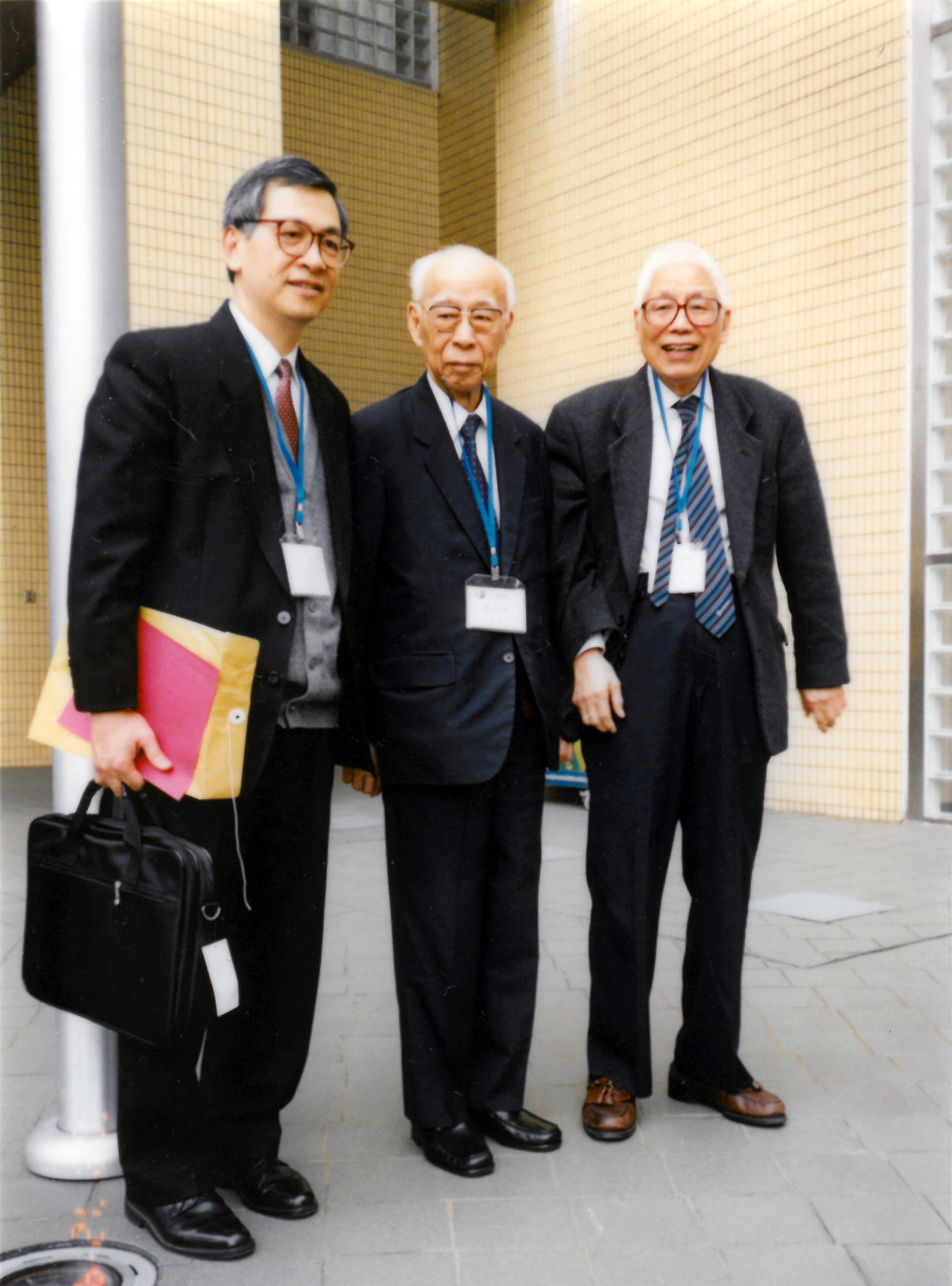Cultural
Exchange
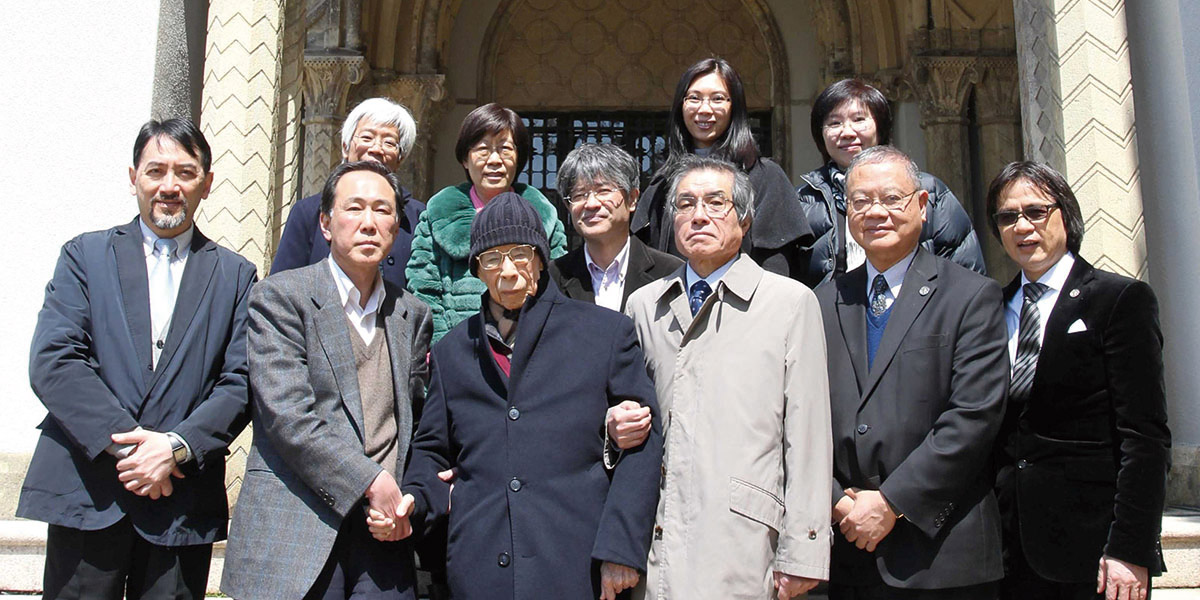
Professor Jao has always advocated a positive appraisal of cultural exchange. He holds the idea that human history is essentially the history of intercultural communication. In the case of ancient China, the frequency of interaction between China and foreign cultures was far beyond our imagination; the foreign elements in ancient Chinese culture still demand further attention. Professor Jao did his own innovative research on cultural exchange between ancient Egypt, Babylon, ancient India and ancient China. He also paid close attention to archaeological finds in western China and conducted thorough research on Silk Road culture, Sanxingdui culture and Jinsha site culture.
In fact, Professor Jao himself was a pivotal figure in intercultural communication from the 1950s to the late 1970s. He held posts engaged in teaching and academic research in France, the United States and Japan, resulting in broad and in-depth exchange with foreign sinologists on the study of traditional China. These cultural experiences of Professor Jao are definitely worth exploring further.
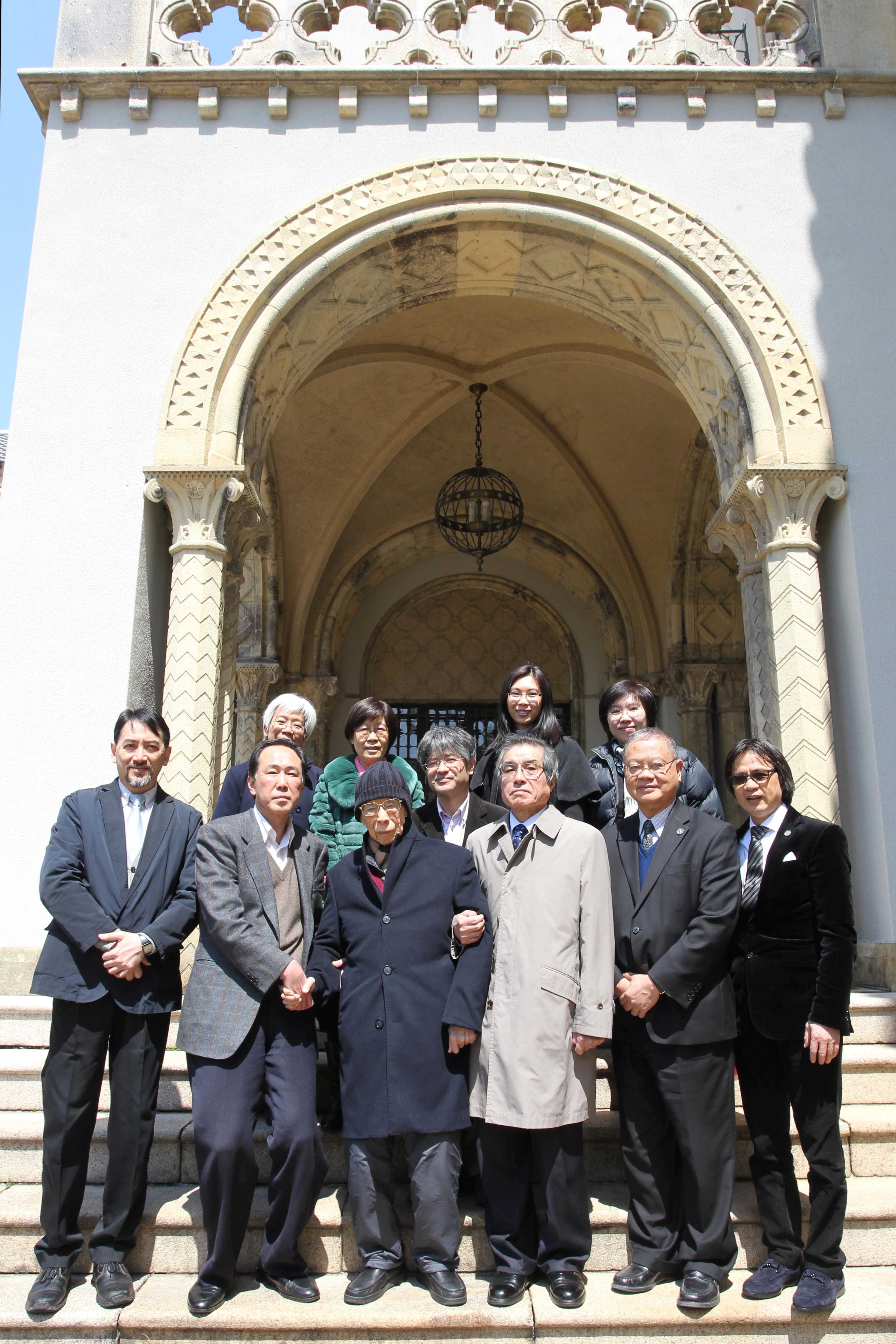
1980年,饒教授應邀到日本京都大學人文科學研究所任客座教授,2012年4月8日重訪。
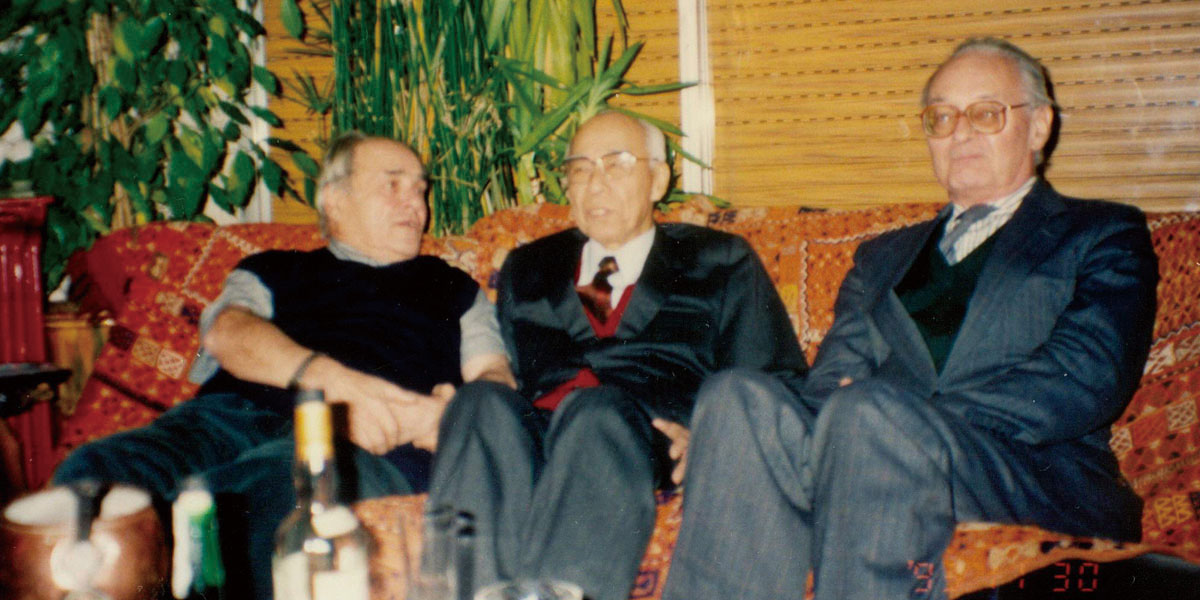
Professor Jao with Assyriologist Jean Bottero (first from the left) and Sinologist Léon Vandermeersch (first from the right) at the residence of Professor Bottero (30th November 1993)
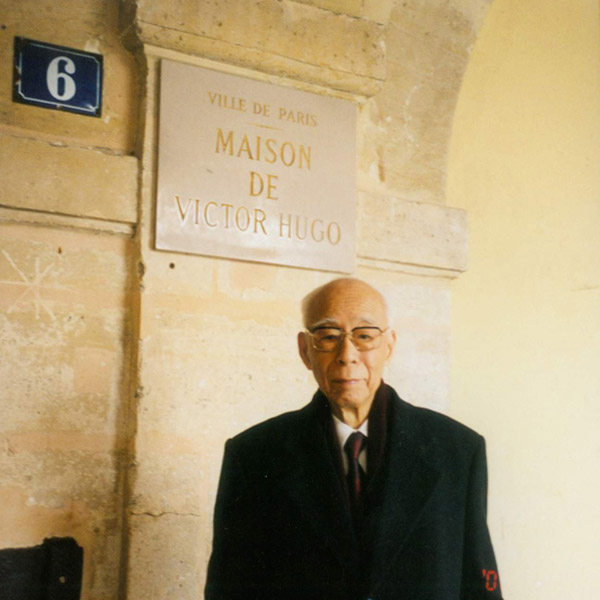
Professor Jao in front of former residence of the French writer, Victor Hugo. (December 2000)
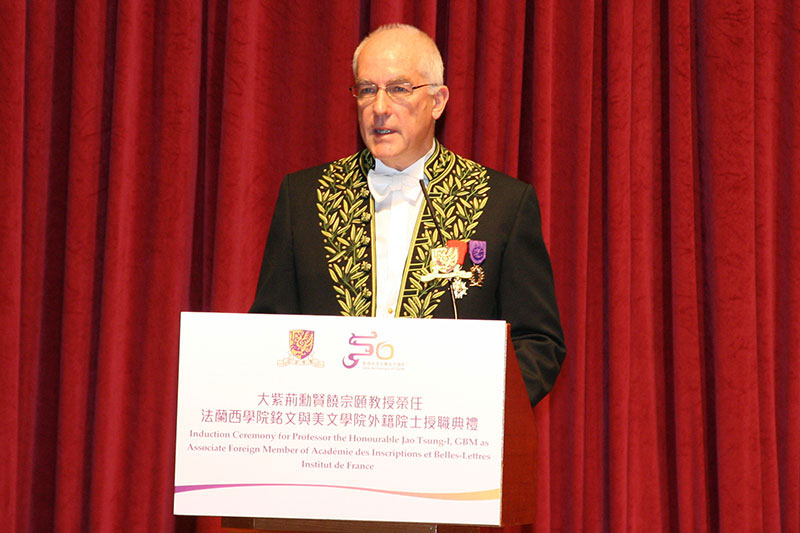
“A highly respected scholar in France since the 1950s, Jao Tsung-i received the 1962 Stanislas Julien Prize of the Academy of Inscriptions and Belles-Lettres, a prestigious award for sinological excellence, for his monumental work Oracle Bone Diviners of the Yin Dynasty / Yin dai zhenbu renwu tongkao 殷代貞卜人物通考 (HKU 1959). …… In 2012, culminating many years of profound interaction with the French academic community, and in recognition of his lifetime achievements, Professor Jao Tsung-i was elected Associate Foreign Member of the Academy of Inscriptions and Belles-Lettres. I cannot presume in the space of these brief comments to do justice to Professor Jao Tsung-i’s incalculable contributions to our understanding of the history of Chinese civilization and the exploits of the human spirit, East and West.”
– Prof Franciscus Verellen Address in the Induction Ceremony of Associate Foreign Member of Academie des Inscriptions et Belles-Lettres Institute de France
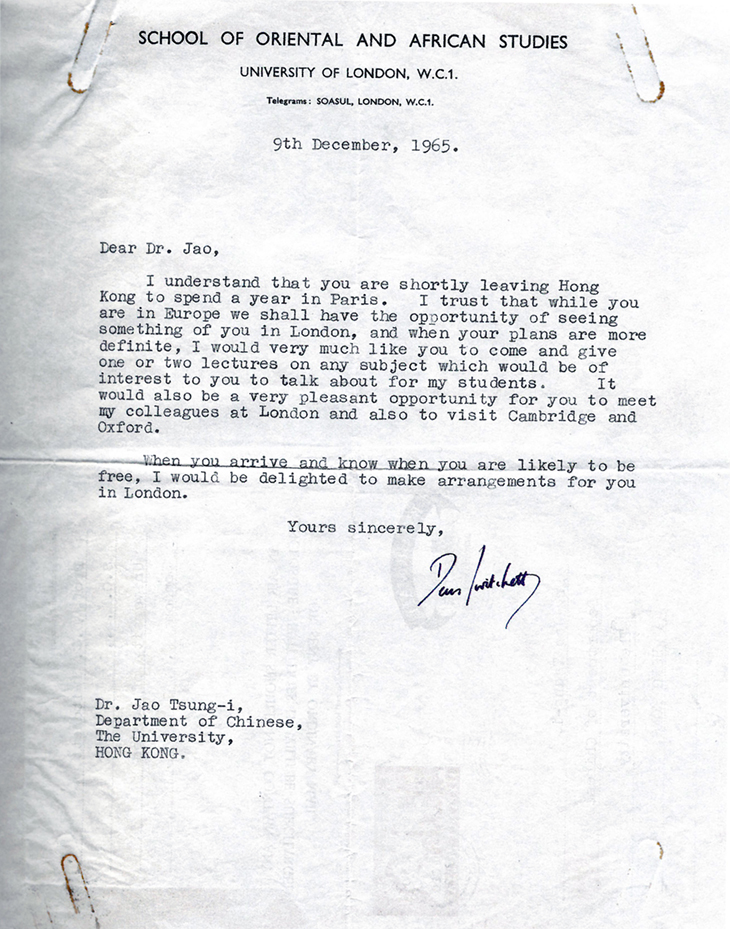
Letter from Professor Denis Twitchett to Professor Jao Tsung-i (1965)
Professor Denis Twitchett (1925-2006) was a British sinologist and historian whose primary research was on the history of the Sui and Tang dynasties. He was at one time Chair Professor of Sinology at the School of Oriental and African Studies, University of London. In 1966, he invited Professor Jao to present a speech at the University of London.
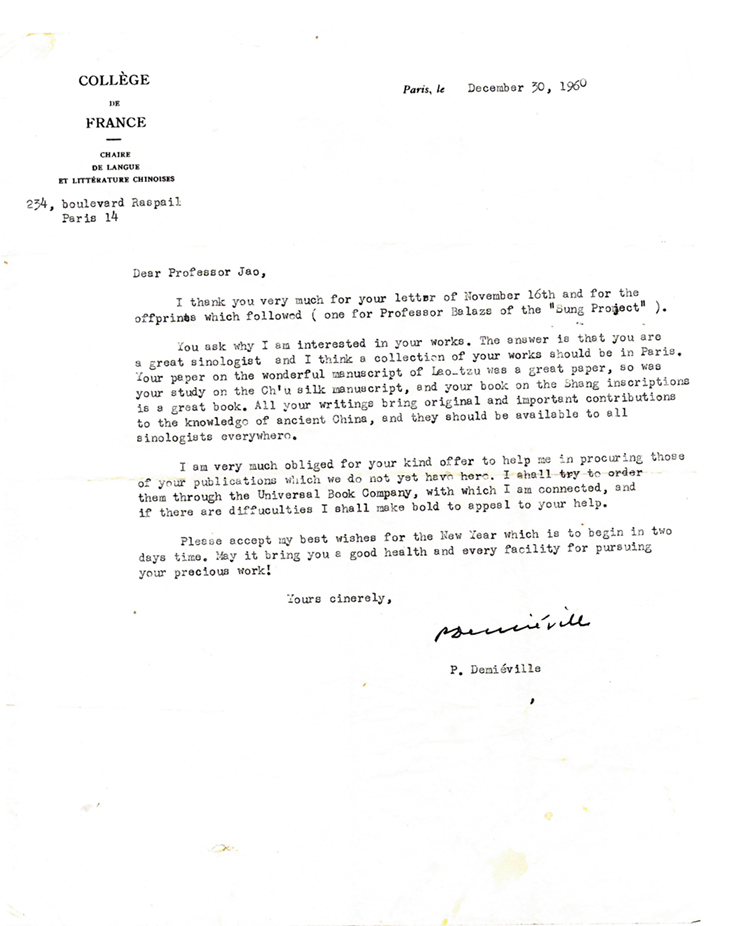
Letter from Professor Paul Demiéville to Professor Jao Tsung-i (1960)
Being the leader of the Sinology circle in France, Professor Paul Demiéville deeply admired Professor Jao’s talent and learning. It was mentioned in the letter that Professor Jao’s research had made tremendous and unique contribution to ancient Chinese Studies, and he highly recommended researchers in sinology around the globe to study his research results.
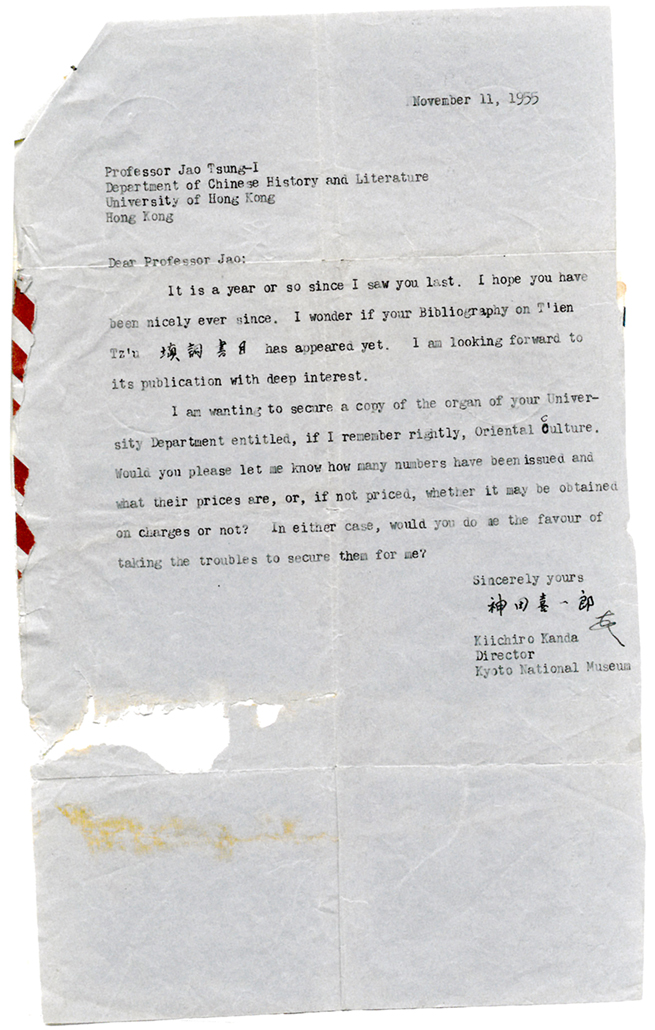
Letter from Prof. Kanda Kiichiro to Professor Jao Tsung-i (1955)
Professor Kanda Kiichiro (1897-1984) was a famous Japanese sinologist who made a name for himself in Dunhuang Studies and calligraphic research. He was Director of the Kyoto National Museum. Before Complete Works of Kanda Kiichiro was published, he invited Professor Jao to write a blurb for this set.
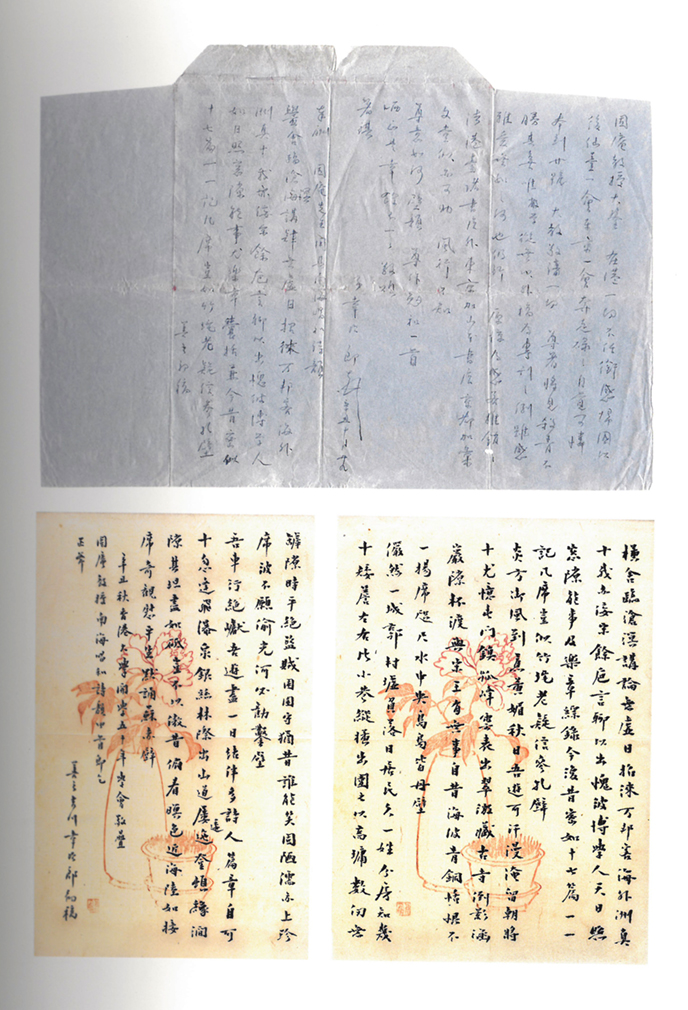
Letter from Prof. Kōjirō Yoshikawa to Prof. Jao (1961)
Professor Jao once recollected that Professor Kojiro Yoshikawa (1904-1980) was ‘the first Japanese sinologist he had contact with’. Professor Kojiro was the representative personage of Kyoto School and Professor teaching Chinese literature at Kyoto University. They used to actively engage in academic exchanges in the area of Classical Chinese Literature.
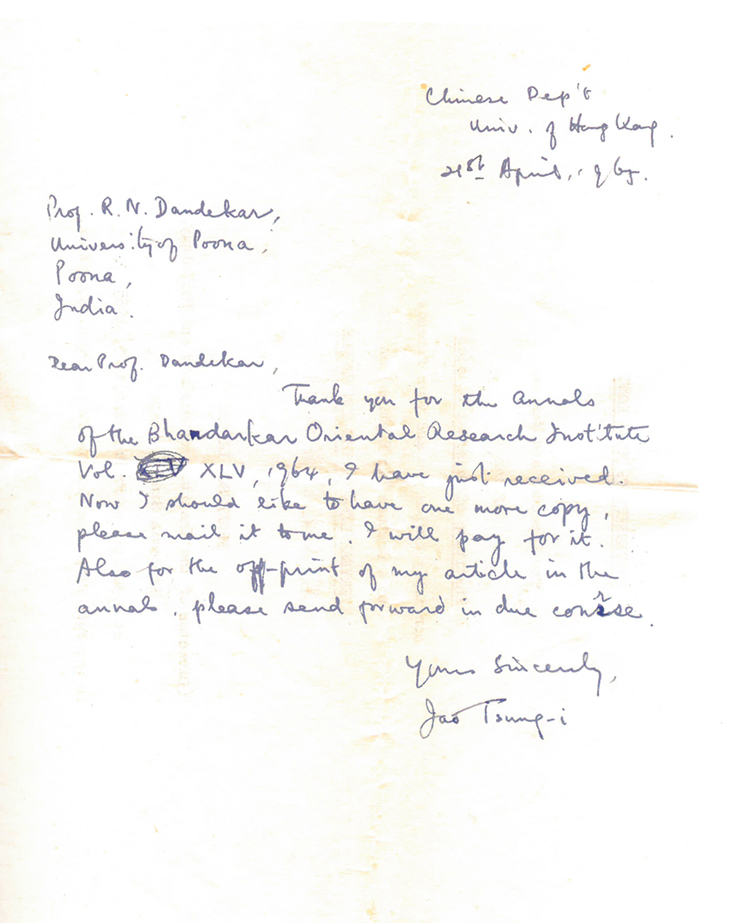
Letter from Prof. Jao to Prof. R. N. Dandekar (1965)
Professor R. N. Dandekar (1909-2001) was an Indologist, Professor at the University of Poona and Honorary Secretary of the Bhandarkar Oriental Research Institute. Mr V. G. Paranjepe invited Professor Jao to study in India, and he asked Professor Dandekar to make the arrangements.
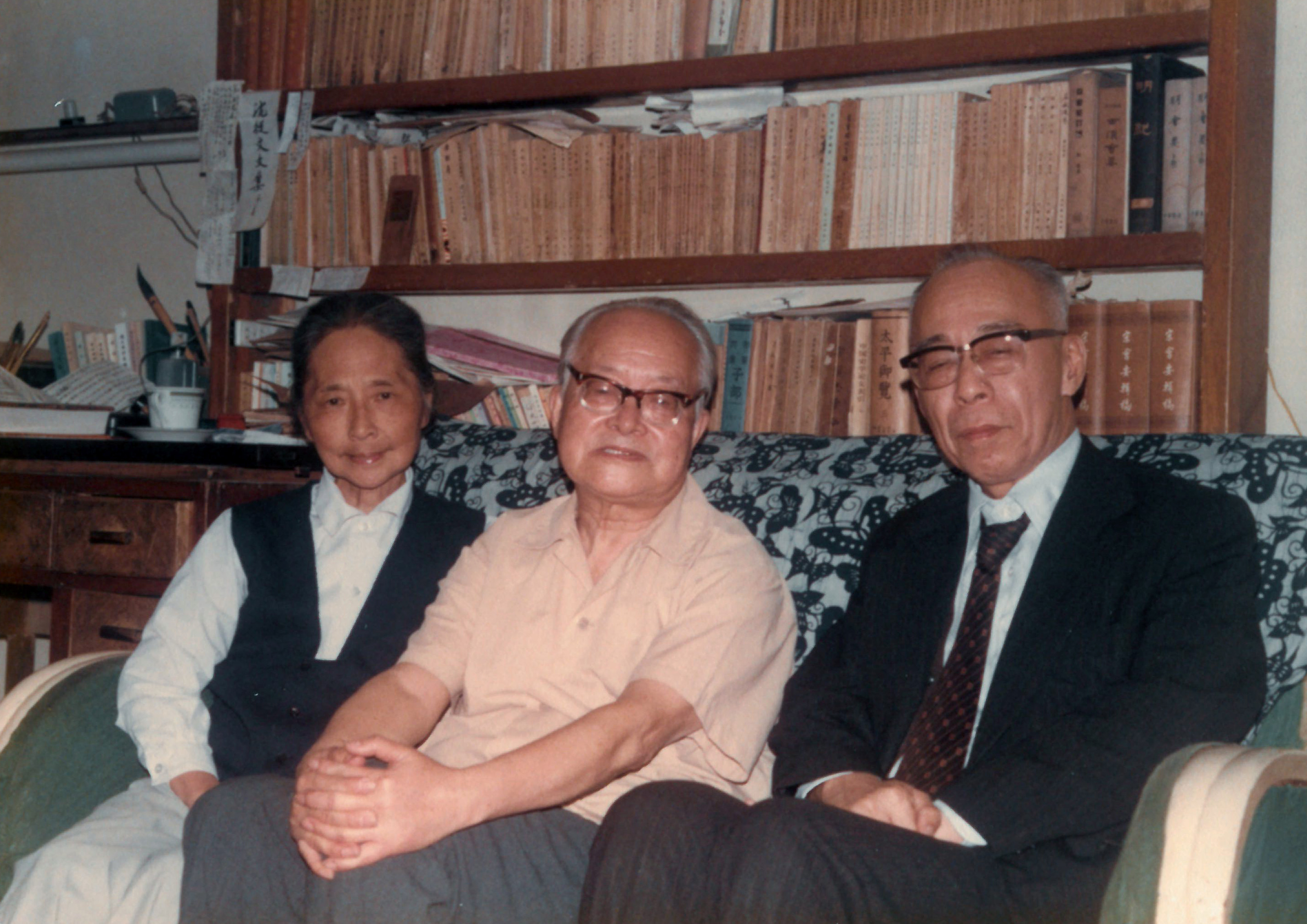
與沈從文先生
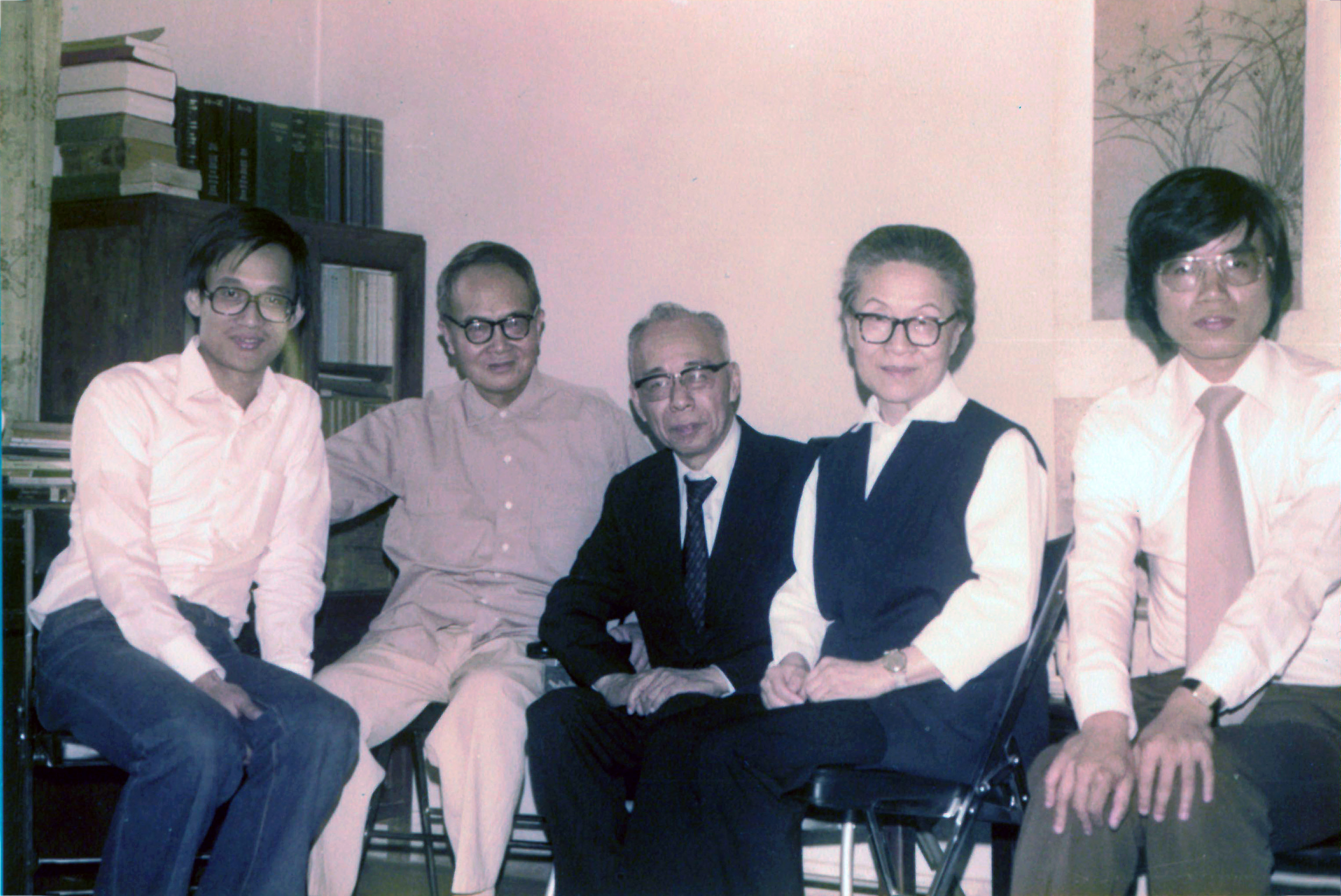
與錢鍾書先生
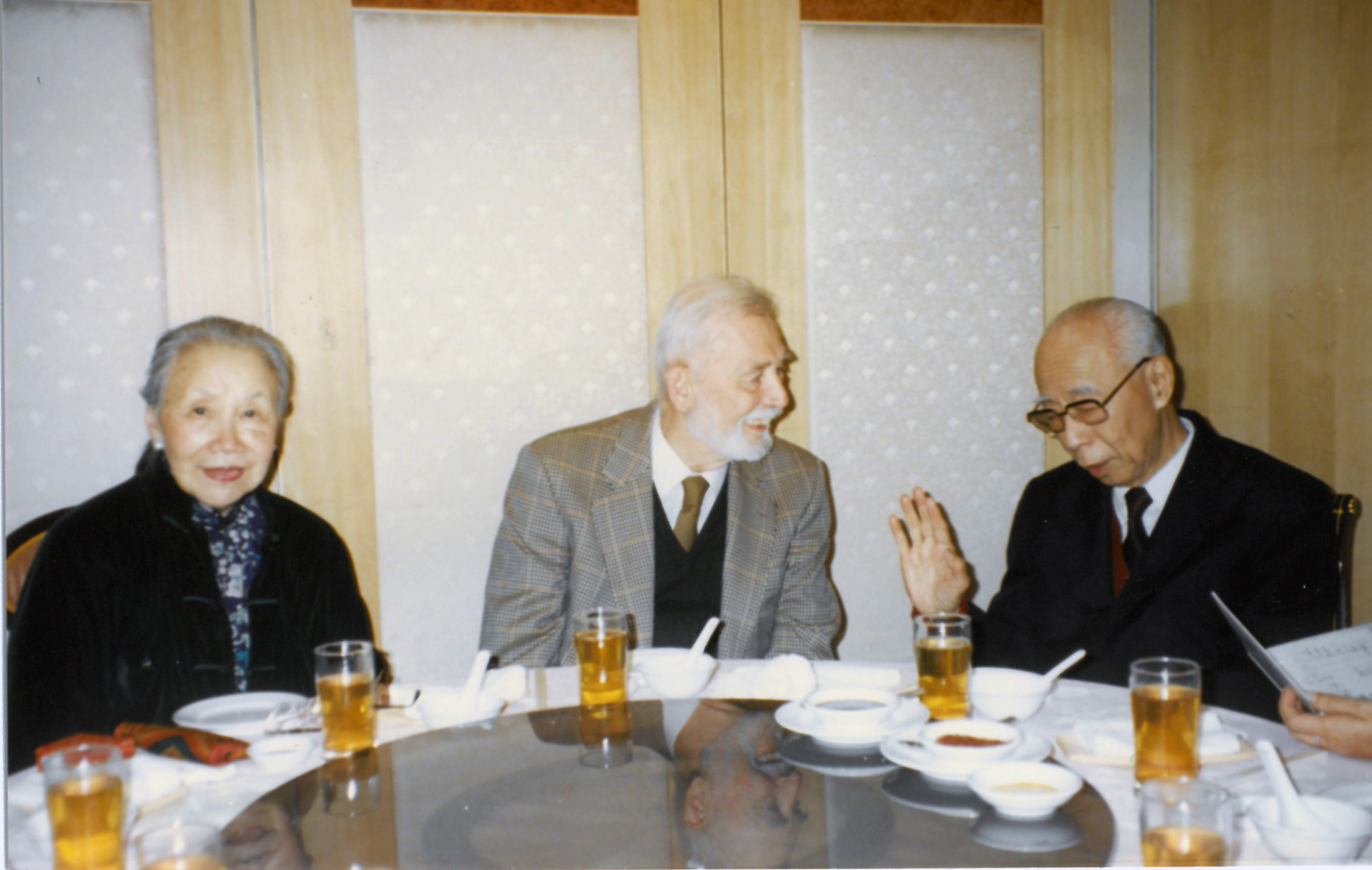
與霍克思教授 ( Professor David Hawkes) 和 方召麔女士
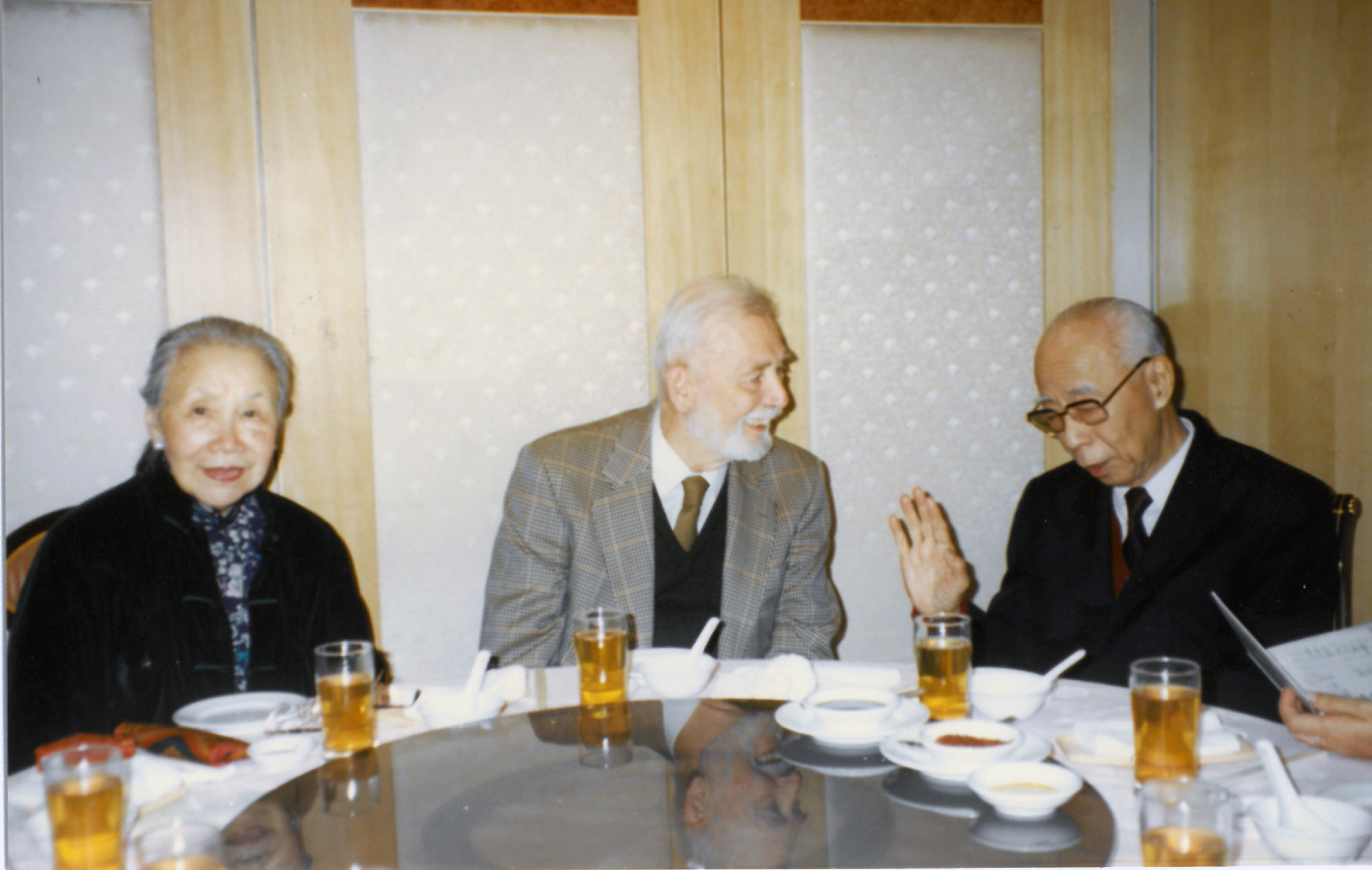
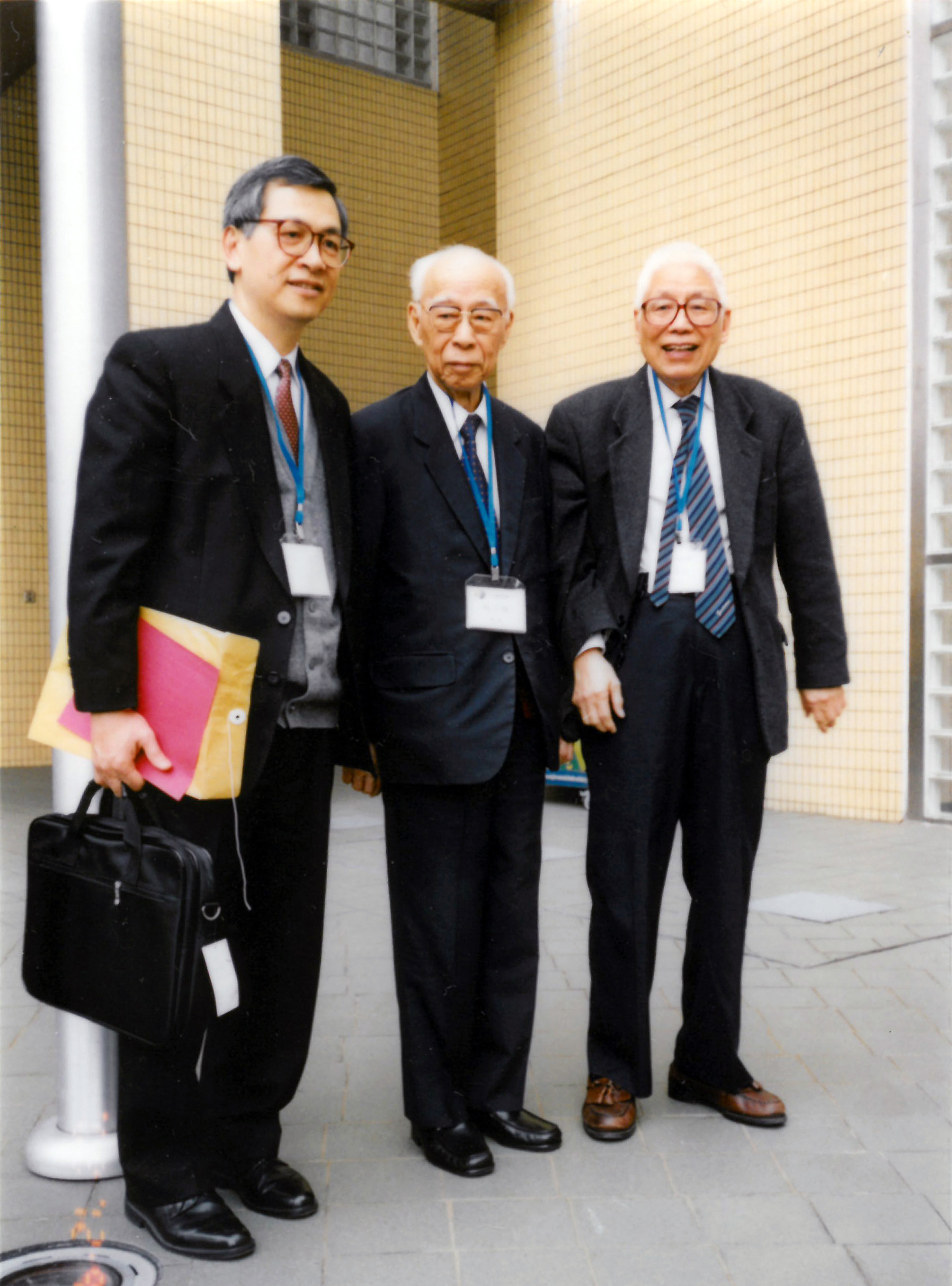
與周策縱教授、單周堯教授
